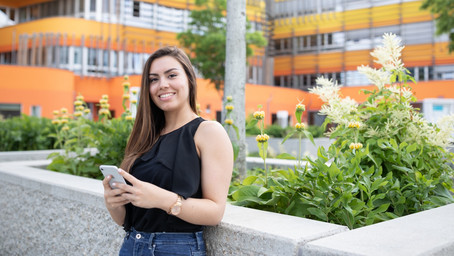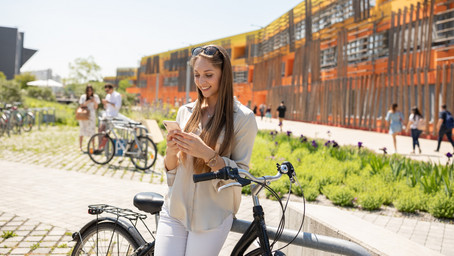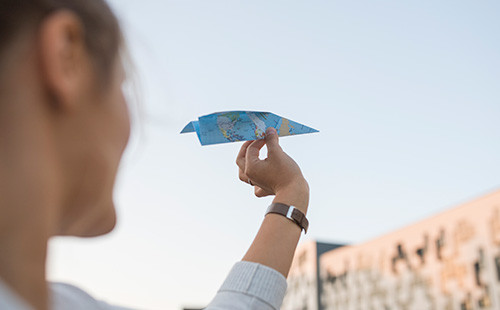Your sustainable exchange stay abroad
Are you gearing up for studying or working abroad and looking to travel in an eco-friendly way? If you are planning to make your stay more sustainable, this website provides a variety of tips to help you make environmentally conscious choices.
- Choice of destination
- How to get there eco-friendly
- Green Travel Support (Erasmus+ funding)
- Things to consider on site
- Good to know
Choice of destination

Are you considering different partner universities, International Short Programs, or internships abroad? Opt for a closer location! Choosing proximity reduces both your travel time and that of potential visitors. Additionally, it facilitates the use of environmentally friendly travel options, such as buses or trains.
How to get there eco-friendly
Traveling by train or bus is generally more eco-friendly than flying. Car sharing or carpooling can also be a good alternative. However, some routes may only be feasible by air. In these cases, opt for flights with minimal stopovers. As a compromise, consider flying to a major hub and then continuing your journey by train or bus. Additionally, ensure that the alternative travel options at your destination are safe and reliable.
Green Travel Support (Erasmus+ funding)
For exchange semesters and internships abroad: As a general rule, students traveling less than 500 km should use environmentally friendly means of transport (Green Travel). These include: bus, train, and bike. Find more info on financial support for travel costs:
Things to consider on site

Here are some practical tips for an eco-friendly stay abroad:
Use public transport: Opt for public transportation whenever possible. If available, consider using car-sharing services or renting a bike.
Stay longer in fewer places: To truly immerse yourself in the local culture, spend more time in each location. This approach allows you to experience the local people, culture, and nature more deeply, beyond just visiting tourist sites.
Opt for sustainable accommodation: Choose places that prioritize eco-friendly practices, such as energy-efficient buildings, recycling programs, and locally sourced, seasonal food. To further reduce waste and costs, consider buying second-hand furniture and kitchen essentials. Connecting with former exchange students who are leaving the country can be a great way to find these items affordably.
Conserve water: Be mindful of your water usage. Even while on vacation, keep showers short and reuse towels when possible.
Learn about local waste separation: Familiarize yourself with local waste separation practices and always dispose of trash in designated bins to respect the environment.
Minimize plastic waste: Bring reusable items like a cotton bag, water bottle, and lunch box from home to avoid single-use plastic and unnecessary costs. In areas with drinkable tap water, using a reusable bottle can help you save money and reduce waste.
By following these guidelines, you can contribute to a more sustainable and respectful travel experience.
Good to know

Use the Trainline and interrail/eurail websites to compare train routes, prices and ticket bookings within Europe. Note: Booking fees may apply.
Eurail has partnered with the Erasmus Student Network (ESN), offering outgoing Erasmus+ students the opportunity to purchase train tickets at an attractive rate. For further details, please visit this website.
With EcoPassenger, you can compare your emissions and other environmental impacts by mode of transport (for travel within Europe).
You can find more suggestions on sustainable behavior via the Green Erasmus website.
